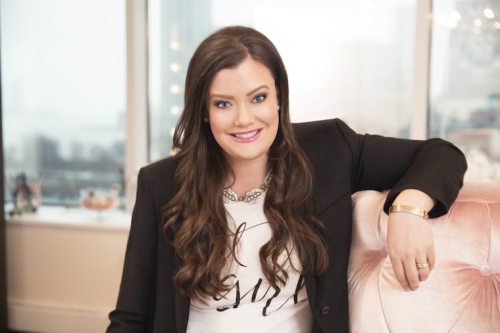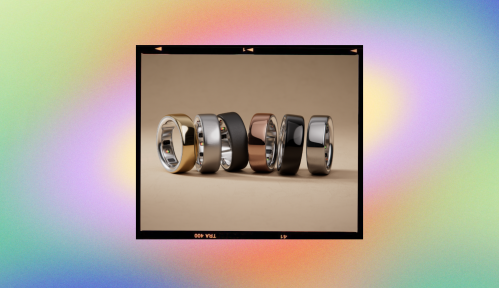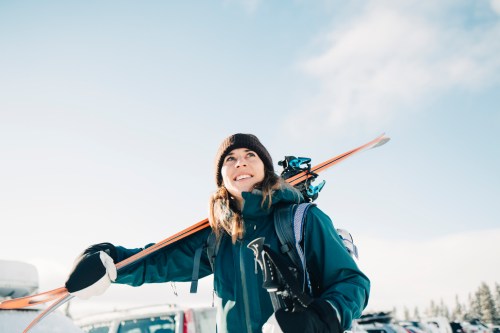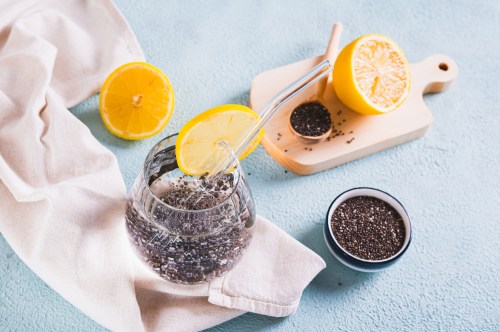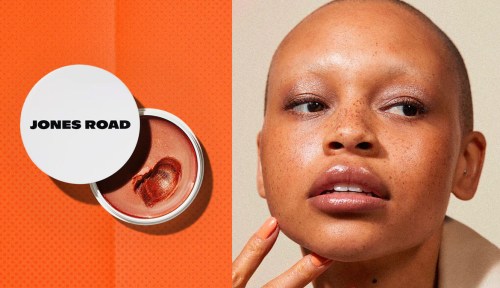The very nature of makeup and skin care is to do away with a few beauty imperfections and to bolster one’s self-confidence. So when the now 40 year-old Jamie Kern Lima bared her rosacea on live television to millions of QVC viewers to prove that her beauty brand—the now all-famous IT Cosmetics—really worked, she changed the game, elevating authenticity above all else. This was in 2010, back before the #nofilter and #makeupfree social media movements had really taken hold.
Just eight years later, her line of solutions-oriented cosmetics and skin care has catapulted into a 1.2 billion dollar company that was acquired by L’Oréal Paris in 2016. Pretty major, considering Kern Lima essentially created the brand for people like herself who had hard-to-deal-with complexion woes—a group she never realized would be such a large and influential market.
She trusted her gut in terms of marketing, stayed motivated despite hearing the word “no,” and remained true to her beliefs about the brand’s DNA, and in doing so, Kern Lima became a force to be reckoned with in the beauty industry. Here, how putting her vulnerability on the line inspired pure magic.
Keep scrolling to find out how the founder of IT Cosmetics got started and her best advice to young entrepreneurs.
How did your own skin vulnerability lead you to create a skin-care line?
I was so tired of buying product after product that didn’t work, and I knew that if I could ever find something that actually gave me my most beautiful skin, it would be life-changing. Then, I realized there must be so many other women out there like me, and so I was fueled by the idea of changing lives. That passion is what started my company and it’s kept me going, and literally working 100 hours a week building IT Cosmetics.
My skin changed so much in my twenties and I developed hereditary rosacea (even my eyebrows stopped growing back in as a result). I realized that when you have perfect skin, it’s easy to find makeup that looks good. But if you have large pores or dry skin or any issue you want to actually cover, that changes everything.
During a newscast, I accidentally wiped off my eyebrow—there was nothing I could do. I just smiled really big and kept on anchoring…with one eyebrow.
I was working as a television news anchor on a morning show that ran from 5 a.m. to 9 a.m., and during one newscast, I accidentally wiped my eyebrow off in the middle of it—there was nothing I could do because you don’t get a break. I just smiled really big and kept on anchoring…with one eyebrow.
How did you win the trust of real women to share their skin-care woes with the entire country?
Being a woman who suffers from hereditary rosacea and hyperpigmentation, I know how difficult it is to find products that look good on my skin—so I knew in my gut it was important to have real women with real skin concerns show how game-changing our products are.
This Parisian Skincare Brand Is Launching in the United States for the First Time—Here’s What a Derm Wants You to Know

We’re Calling It: Cleansing Balms Are the Face Wash of the Future—Here Are 3 to Add to Your Cart

This Is the One Product That Scarlett Johansson Always Keeps in Her Purse and on Her Bedside Table

We were given one chance to go on QVC and hit our sales numbers—or not come back. Experts were advising me to use images and models that were aspirational, but my gut told me that women were tired of ads with women who didn’t look like them.
“I decided to take my makeup off on live TV to show my bright red rosacea.”
I did things differently: I decided to take my makeup off on live TV to show my bright red rosacea. And I cast models like Helen, who is 73, and Alicia, who is African-American with acne and hyperpigmentation, and Desiree, who has undereye circles no matter how much sleep she gets. The experts told me this was a mistake, but it was authentic to our brand—so I risked everything on what I felt was right.
We went live with 10 minutes. I showed my bare face, as did the real women I’d cast as models—and then the “sold out” sign went up. I cried, because women let their voices be heard. I’ll never forget that moment.
You had success on QVC. But retailers weren’t so friendly. How did you deal with being told, “no” a trillion times?
The biggest hurdle was hearing the word, “no” from just about every retailer. But I decided that it just meant “not yet.” All of our most important partners to our business today turned us down initially—in some cases, several times.
But we kept being persistent, focusing on truly developing life-changing products, and real women everywhere started spreading the word about the brand until eventually we got a “yes” from every retailer.
“You just have to remember that your gut’s more powerful than anyone’s advice—so stick to it.”
What’s your best advice for career women?
Never let hearing the word, “no,” equate to doubt in your own head. You know in your gut when something is right. I believe I am meant to make people’s lives better and remind every person they’re beautiful by being brave and showing my true self. A lot of times, doing something disruptive means no one else is doing it yet, so people will tell you it’s wrong. You just have to remember that your gut’s more powerful than anyone’s advice—so stick to it.
Read up on another badass beauty boss, with the story behind Lisa Price of Carol’s Daughter. And this is how 7 wellness gurus supercharge their mornings.
Sign Up for Our Daily Newsletter
Get all the latest in wellness, trends, food, fitness, beauty, and more delivered right to your inbox.
Got it, you've been added to our email list.
